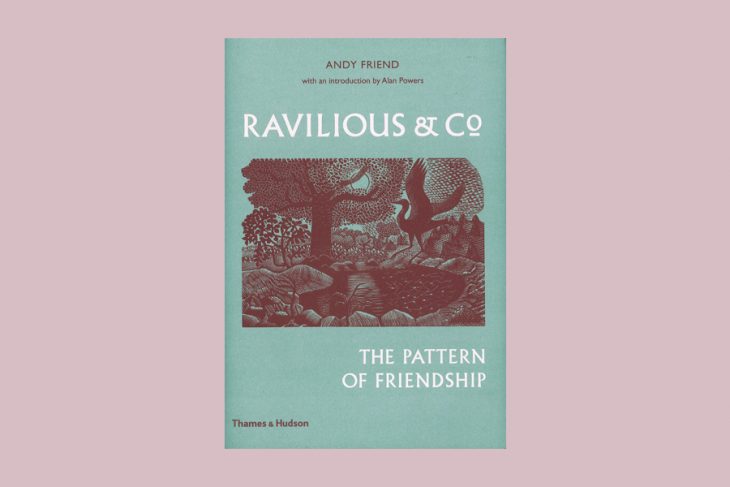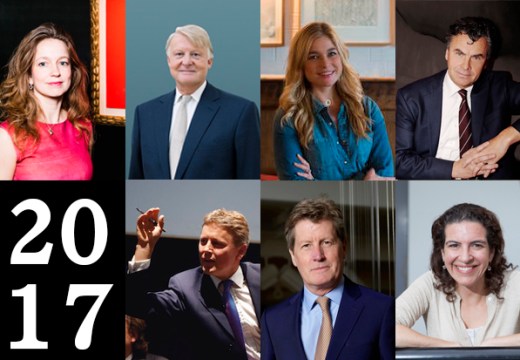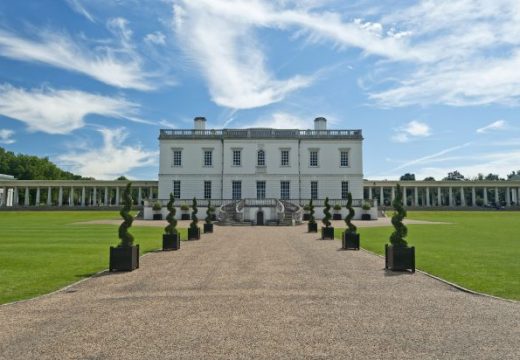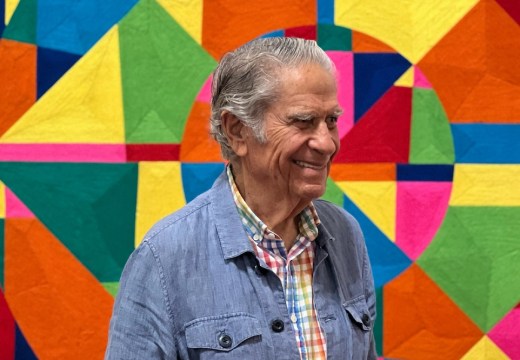This week’s competition prize is Ravilious and Co: The Pattern of Friendship, by Andy Friend (with an introduction by Alan Powers), published by Thames & Hudson. Click here for your chance to win.
In recent years Eric Ravilious has become recognised as one of the most important British artists of the 20th century, whose watercolours and wood engravings capture an essential sense of place and the spirit of mid-century England. What is less appreciated is that he did not work in isolation, but within a much wider network of artists, friends and lovers influenced by Paul Nash’s teaching at the Royal College of Art – Edward Bawden, Barnett Freedman, Enid Marx, Tirzah Garwood, Percy Horton, Peggy Angus, and Helen Binyon among them. The Ravilious group bridged the gap between fine art and design, and the gentle, locally rooted but spritely character of their work came to be seen as the epitome of contemporary British values.
Seventy-five years after Ravilious’s untimely death, Andy Friend tells the story of this group of artists from their student days through to the Second World War. Ravilious & Co. explores how they influenced each other and how a shared experience animated their work, revealing the significance in this pattern of friendship of women artists, whose place within the history of British art has often been neglected. Generously illustrated and drawing on extensive research, and a wealth of newly discovered material, Ravilious & Co. is an enthralling narrative of creative achievement, joy and tragedy.
For your chance to win simply answer the following question and submit your details here before midday on 7 July:
Q: In which English county is the village of Great Bardfield, where Eric Ravilious and many other artists settled?
Last week’s competition prize was Vermeer and the Masters of Genre Painting, edited by Adriaan E. Waiboer with Arthur K. Wheeler, Jr and Blaise Ducos, published by Yale University Press. The question was:
Q: In which Dutch city was Vermeer born?
A: Delft
Congratulations to the winner, Karen Haines.
Unlimited access from just $16 every 3 months
Subscribe to get unlimited and exclusive access to the top art stories, interviews and exhibition reviews.














![Masterpiece [Re]discovery 2022. Photo: Ben Fisher Photography, courtesy of Masterpiece London](http://www.apollo-magazine.com/wp-content/uploads/2022/07/MPL2022_4263.jpg)
It’s time for the government of London to return to its rightful home